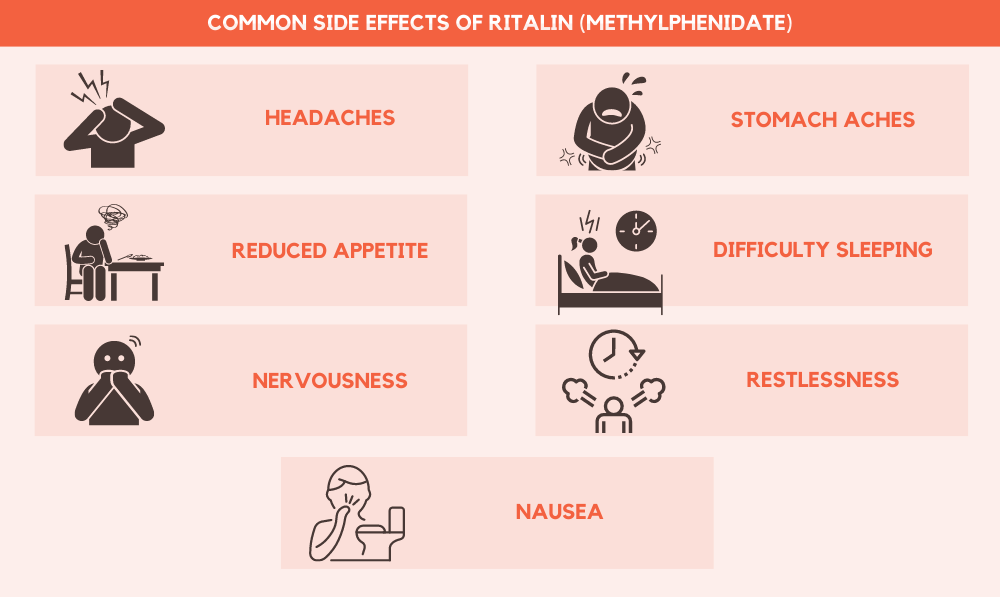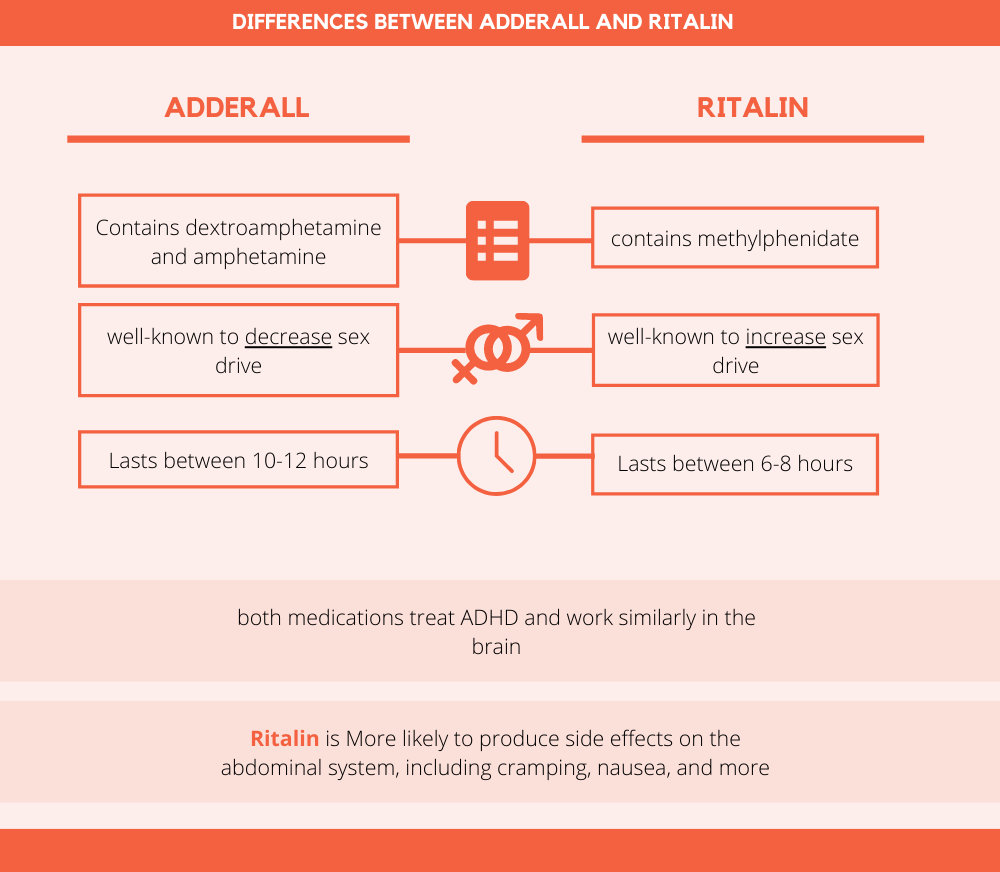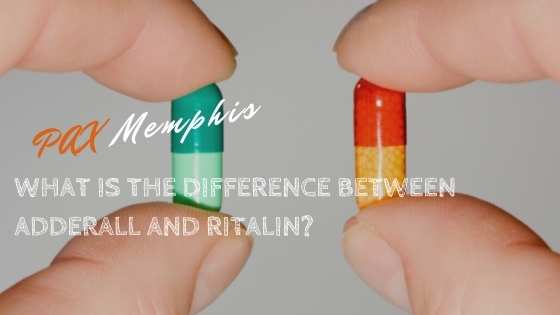Adderall and Ritalin are two prescription medications that are frequently used to treat attention deficit hyperactivity disorder (ADHD). ADHD is a condition that usually develops in early childhood. Children with ADHD may have trouble concentrating in school or experience behavioral problems. As a result, many children are prescribed stimulant medications to help manage their condition.
People with ADHD react positively to stimulant medications because these drugs increase their attentiveness and concentration. Unfortunately, prescription stimulants are often abused among people who don’t necessarily need the medication. Instead, they are abused because people are seeking a high. Both Ritalin and Adderall are commonly abused among teenagers and young adults and can lead to addiction.
While both drugs are similar, they contain different ingredients that may produce different side effects. Let’s take a look at some of the key differences and similarities between Adderall and Ritalin.
What is Adderall (Amphetamine/Dextroamphetamine)?
Adderall is a prescription medication containing two stimulant drugs: amphetamine and dextroamphetamine. The medication was originally approved by the FDA to treat ADHD, however, it is also used off-label to treat narcolepsy, a daytime sleep disorder.
Patients may take Adderall between 1-3 times per day. Adderall comes in an extended-release formulation as well as an instant-release formulation. The medication can help people stay focused, prevent behavioral problems, improve listening skills, and improve organizational skills.
People who abuse Adderall and get addicted to it or those who take the substance for an extended period of time may experience withdrawal symptoms if they suddenly stop taking it. Common Adderall withdrawal symptoms include fatigue, sleep disturbances, mood swings, anxiety, and depression.
Side effects of Adderall (amphetamine/dextroamphetamine) include:[1]
- Headaches
- Nausea
- Stomach aches
- Dizziness
- Difficulty sleeping
- Jaw clenching/teeth grinding
- Dry mouth
- Nervousness
- Lack of appetite
- Weight loss
- Constipation or diarrhea
What is Ritalin (Methylphenidate)?
Similar to Adderall, Ritalin is a prescription stimulant medication that is used to treat ADHD and, sometimes, narcolepsy. Ritalin contains one active ingredient: methylphenidate. Methylphenidate is a stimulant that works to improve focus, concentration, alertness, and attentiveness in people struggling with ADHD.
People who are prescribed Ritalin will take the medication 2-3 times per day as directed by their doctor. Drug users may abuse Ritalin by taking a high dose, taking a prescription that isn’t theirs, or snorting or injecting the drug to produce a high. As a stimulant, Ritalin is commonly abused among students and young adults or partygoers who want an extra boost of energy.
People who abuse or become addicted to Ritalin or those who take the prescription for an extended length of time will become physically dependent on the drug. As a result, they will experience withdrawal symptoms if they stop taking it suddenly.
Common side effects of Ritalin (methylphenidate) include:[2]

- Headaches
- Stomachaches
- Reduced appetite
- Difficulty sleeping
- Nervousness
- Restlessness
- Nausea
Ritalin can stay in your system for up to three days.
Differences Between Adderall and Ritalin
The main difference between these two medications is the ingredients they contain. Adderall contains dextroamphetamine and amphetamine while Ritalin contains methylphenidate. Although both medications treat ADHD and work similarly in the brain, they may produce slightly different side effects.
While Adderall is well-known to decrease sex drive, Ritalin may do the opposite by increasing sex drive, particularly in men. At the same time, Ritalin is more likely to produce side effects on the abdominal system, including cramping, nausea, and more.
Another main difference between Adderall and Ritalin is that the extended version of Adderall lasts substantially longer than the extended-release version of Ritalin. Adderall lasts between 10-12 hours while Ritalin lasts for 6-8. As a result, people may have to take Ritalin more often or take it in higher doses.

Similarities Between Adderall and Ritalin
Despite a few major differences, several studies have proven the efficacy of ADHD management using both Adderall and Ritalin. Between 70-80% of children who take one of these two ADHD medications experience fewer symptoms.[3] That being said, a 2018 study suggests that children may be better off taking Ritalin while adults with ADHD may be better suited to take Adderall.[4]
Both medications carry a risk of abuse and addiction. People who get addicted to either medication can benefit from the same type of addiction treatment program. In addition, the risks associated with both of these medications are similar. Adderall and Ritalin both have warnings on their labels because they are associated with rare but very serious cardiac conditions.
Find Help for Stimulant Medication Addiction Today
Even though so many young people mistakenly view ADHD medications as harmless study drugs, they are actually extremely dangerous and addictive. If you or someone you know is addicted to Adderall or Ritalin, you will want to find a medical detox and an evidence-based drug treatment program for help. At PAX Memphis Recovery Center, we’re here to help you find the treatment you need. Call today to get started on your recovery journey.
References:
Medically Reviewed: September 25, 2019

All of the information on this page has been reviewed and verified by a certified addiction professional.










